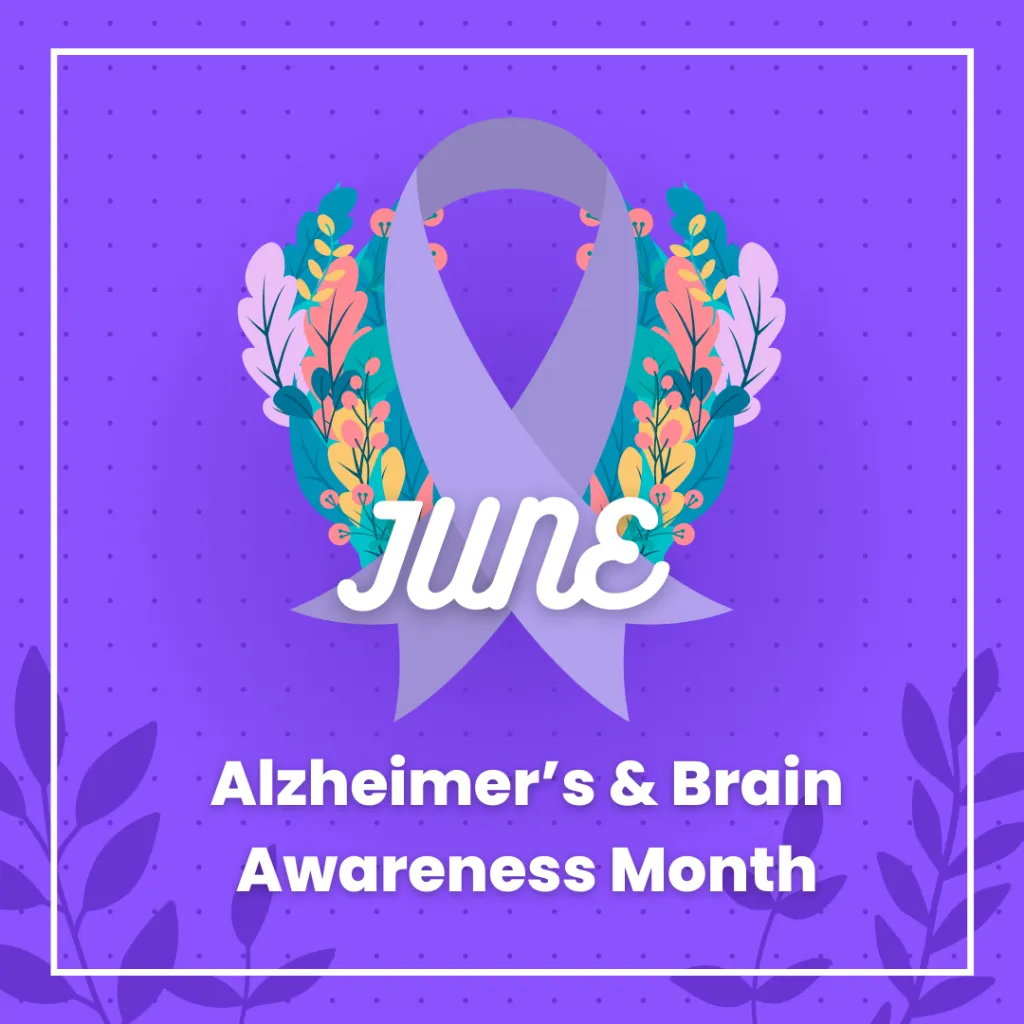Understanding Alzheimer’s and Dementia: Exploring Innovative Treatments like Micro-Point Stimulation for Brain Health
Did you know that globally, around 50 million people have dementia, and there are nearly 10 million new cases every year, according to the World Health Organization? That’s nearly the entire population of Spain dealing with this condition every year. It’s an alarming figure that underscores the gravity of brain illnesses, specifically Alzheimer’s and dementia.
Alzheimer’s and dementia are cognitive conditions that progressively impair memory, thought processes, and the ability to perform everyday tasks. They’re not just ‘forgetfulness’ as some may think, but rather intricate neurological disorders that significantly impact an individual’s life.
In this day and age, where we’re making phenomenal strides in healthcare and technology, the importance of raising awareness about these conditions cannot be overstated. By increasing our collective understanding, we can contribute to improving the lives of those affected, promoting their dignity and respect in society, and propelling further research into prevention and cure.
So, let’s dive in and unravel the complexities of Alzheimer’s and dementia, because knowledge, after all, is power. And in this case, it’s a power that could make a world of difference.

Understanding Alzheimer’s and Dementia
Definition and Explanation of Alzheimer’s Disease
Delving into the realm of Alzheimer’s and dementia, it’s crucial first to understand what these terms represent. Alzheimer’s disease is a degenerative brain disorder that slowly destroys memory and thinking skills. Eventually, the ability to carry out simple tasks diminishes. It is the most common cause of dementia among older adults, a term that refers to a decline in mental ability severe enough to interfere with daily life.
The early symptoms of Alzheimer’s disease can often be subtle, masquerading as normal age-related forgetfulness. These can include occasional memory lapses, difficulty remembering names or finding the right words, and minor challenges with complex tasks. However, these symptoms gradually escalate, moving beyond typical forgetfulness.
As Alzheimer’s disease progresses, the symptoms become more pronounced. Individuals may find it hard to carry out routine tasks, lose track of their location, experience mood and personality changes, and struggle with remembering recent events or conversations. Over time, severe symptoms start to surface, such as significant memory loss, confusion about events, time, and places, unfounded suspicions about family, friends, and caregivers, and difficulty speaking, swallowing, or walking.
The impact of Alzheimer’s on an individual’s life is profound, affecting their independence, relationships, and overall quality of life. It’s not just a disease of memory loss; it’s a disease that can alter the course of a person’s life entirely. This is why our awareness and understanding of Alzheimer’s disease and dementia are of utmost importance. In the next section, we’ll explore how these diseases are currently being addressed in the healthcare sector, and what we can do to support those living with these conditions.
Demystifying Dementia: Beyond Normal Memory Loss
With Alzheimer’s as the most well-known type, Dementia is often misunderstood as a singular disease. In reality, dementia is an umbrella term for symptoms caused by various diseases and conditions that affect cognitive functions to a degree that impairs daily life and activities. It’s characterized by difficulties with memory, language, problem-solving, and other thinking skills that affect a person’s ability to perform everyday activities.
There are several types of dementia, each associated with a particular set of symptoms. While Alzheimer’s disease is the most common type, Vascular dementia (often after a stroke), Dementia with Lewy bodies, Frontotemporal dementia, and Mixed dementia are other types that also affect a significant number of people. Symptoms vary between the types but often overlap, making diagnosis a complex process. Most types of dementia lead to structural and chemical changes in the brain that cause cells to die prematurely.
Unlike normal memory loss that accompanies aging, dementia involves a much more pronounced decline in cognitive abilities. We all forget where we put our keys or the name of an acquaintance from time to time. However, dementia goes beyond mere forgetfulness. It may involve struggling to communicate, getting lost in familiar places, failing to grasp abstract concepts, or changes in mood or behavior. It’s important to note that having memory loss alone doesn’t mean you have dementia.
Understanding dementia and its different forms is crucial to provide effective care and support for those affected. Recognizing the difference between normal memory loss that comes with aging and potential signs of dementia can lead to early intervention and better outcomes. As we continue to explore the landscape of brain illnesses, the role of innovative treatments, such as Micro-Point Stimulation (MPS), becomes increasingly significant, offering new hope in enhancing brain health and improving the quality of life of those living with these conditions.
The Far-reaching Impact of Alzheimer’s and Dementia
A diagnosis of Alzheimer’s or dementia reverberates far beyond the individual who receives it. It brings significant changes to the lives of all involved, not just those directly afflicted. The wide-ranging impacts of these conditions stretch from the individual, to the family and caregivers, and even up to societal level.
For the Individual: Cognitive, Physical, and Emotional Changes
People diagnosed with Alzheimer’s or dementia experience profound cognitive changes. Memory loss, confusion, difficulty with language, and problems with visual perception are all common symptoms. Over time, these cognitive changes can lead to physical effects too, like difficulty with balance and coordination. Everyday tasks like cooking, dressing, or even walking become increasingly challenging.
Emotionally, these illnesses can induce fear, anxiety, and frustration. The confusion of not remembering people or places, or struggling to communicate, can lead to withdrawal from social activities, depression, or mood swings.
For Family and Caregivers: Emotional Stress,
Financial Impact, and Lifestyle Changes
Alzheimer’s and dementia ripple out to affect the lives of family members and caregivers as well. The responsibility of care can lead to emotional stress, as loved ones grapple with the reality of the disease and the personality changes it brings about. The financial strain is also significant, as the need for care increases over time.
The time commitment required from caregivers often necessitates lifestyle changes, such as reducing work hours or giving up other responsibilities. Despite these challenges, the journey can also strengthen bonds, teach resilience, and bring about a deep sense of purpose and fulfillment.
For Society: Healthcare Costs and Increasing Prevalence
On a societal level, Alzheimer’s and dementia bring substantial healthcare costs, both direct and indirect. As our population ages, these costs are set to increase, placing an immense burden on healthcare systems. With the rising prevalence of these conditions, it’s more important than ever to raise awareness, invest in research, and improve care and support for those affected.
In facing the challenges posed by Alzheimer’s and dementia, knowledge is power. It is our hope that by understanding these diseases better, we can lessen their impact and improve the quality of life for those affected and their families. The advances in treatments like Micro-Point Stimulation (MPS) are a testament to this hope, offering new avenues for management and recovery.
The Vital Role of Early Diagnosis
A cornerstone of managing Alzheimer’s and dementia lies in early detection and diagnosis. By catching these conditions in their early stages, we can help manage symptoms more effectively, potentially slowing the progression of the disease and preserving quality of life for a longer period.
The Benefits of Early Diagnosis
Detecting Alzheimer’s or dementia early opens the door to interventions that can help manage symptoms. It provides more time to plan for the future while the person is still able to make informed decisions about their care and financial arrangements. It also allows for the possibility of participating in clinical trials, contributing to research, and potentially accessing treatments that could slow the disease’s progression.
Recognizing the Signs and Symptoms
The early signs of Alzheimer’s and dementia may be subtle and easily confused with normal age-related forgetfulness. However, certain symptoms warrant a visit to a healthcare professional:
- Memory loss disrupting daily life: Regularly forgetting recent events, appointments, or important dates.
- Difficulty completing familiar tasks: Struggling with routine tasks at home or work.
- Confusion with time or place: Losing track of dates, seasons, or having difficulty understanding something if it isn’t happening immediately.
- Trouble understanding visual images and spatial relationships: Difficulty reading, judging distance, determining color, or contrast.
- New problems with speaking or writing: Struggling with vocabulary, having trouble following or joining a conversation.
The Diagnostic Process and Tools
Diagnosing Alzheimer’s or dementia involves a comprehensive medical evaluation. This could include medical history, physical examination, lab tests, and cognitive assessments. Neurological exams help assess balance, sensory function, reflexes, and other cognitive abilities.
Brain imaging techniques such as CT, MRI, or PET scans can help rule out other causes of symptoms like stroke or tumor. More recently, specific biomarker tests have been developed to more accurately diagnose Alzheimer’s disease in its early stages.
Remember, it’s important to seek professional help if you or a loved one exhibit symptoms that concern you. Early diagnosis is a powerful tool in managing Alzheimer’s and dementia, and medical professionals are your allies in this process.
Navigating Treatment Options and Management Strategies
When it comes to Alzheimer’s and dementia, a multi-faceted approach to treatment can often offer the most significant benefits. From medication to physical therapy and groundbreaking technologies like Micro-Point Stimulation (MPS), various options can be tailored to each individual’s needs and circumstances.
Unveiling Available Treatments for Alzheimer’s and Dementia
Currently, Alzheimer’s and dementia treatments focus on managing symptoms and improving quality of life. Medications can help slow cognitive decline in some people, manage mood changes, and reduce certain symptoms such as restlessness or confusion.
However, it’s important to note that while these treatments can provide some relief, they do not cure Alzheimer’s or dementia or stop their progression.
Exploring the Role of Physical Therapy
Physical therapy offers a non-pharmacological approach to manage Alzheimer’s and dementia symptoms. It can help maintain motor function, reduce fall risk, and manage behavioral symptoms such as agitation or restlessness. It also promotes overall well-being and can play a significant role in managing co-existing health conditions often seen in those with Alzheimer’s or dementia.
Introducing Micro-Point Stimulation (MPS)
In the quest to continually improve Alzheimer’s and dementia care, innovative therapies like Micro-Point Stimulation (MPS) have come to light. MPS is a non-invasive therapy that uses low-frequency electrical stimulation to aid in managing symptoms associated with these conditions. This unique therapy offers the potential to increase brain health, improve focus, and enhance cognitive function. It also shows promise in managing symptoms of other brain-related conditions like brain fog and Parkinson’s tremors.
Remember, each person’s journey with Alzheimer’s or dementia is unique. What works best will depend on the individual’s symptoms, the stage of the disease, their overall health, and personal circumstances. The key lies in a comprehensive, personalized treatment approach, working closely with a supportive healthcare team.
Delving into Micro-Point Stimulation (MPS) for Enhanced Brain Health
If you’re exploring treatment options for Alzheimer’s, dementia, or other brain-related conditions, you may come across a unique approach known as Micro-Point Stimulation (MPS). This innovative therapy has garnered attention for its potential benefits in managing these complex conditions. But what exactly is MPS, and how does it work?
Unpacking Micro-Point Stimulation (MPS)
Micro-Point Stimulation is a form of therapy that applies low-frequency, direct current (DC) stimulation to the skin. It’s essentially a neuromechanical therapy that aims to balance the autonomic nervous system and enhance the body’s natural ability to heal.
MPS targets specific acupuncture and trigger points to encourage the body’s production of endorphins, our natural painkillers, and to promote a state of relaxation. This process can help to reduce chronic stress – a factor that has been identified as playing a role in the progression of neurological conditions.
The Role of MPS in Managing Alzheimer’s,
Dementia, and Other Brain Illnesses
MPS therapy’s role in managing Alzheimer’s, dementia, and other brain-related illnesses lies in its ability to stimulate the body’s healing processes and promote overall brain health. It’s used as a complementary therapy alongside other treatment strategies, with the goal of improving cognitive function, reducing symptoms, and enhancing quality of life.
For patients with these conditions, MPS may help to alleviate symptoms such as brain fog, improve focus, and support overall cognitive function. This innovative therapy can be an essential component of a comprehensive treatment plan, which may also include medication, lifestyle modifications, and other non-invasive therapies.
Real People, Real Results: Testimonials from MPS Patients
To bring these potential benefits to life, let’s hear from some patients who’ve experienced MPS first-hand. Carol, an elementary teacher struggling with persistent brain fog, found her focus and memory improved significantly after commencing MPS therapy. Similarly, William, a finance professional in the early stages of Parkinson’s, noticed an increase in his motor functions’ smoothness and a reduction in tremors with MPS therapy.
These individual experiences highlight how MPS can play a crucial role in a comprehensive, personalized approach to managing Alzheimer’s, dementia, and other brain-related conditions. Always remember, there’s no one-size-fits-all solution when it comes to brain health – each person’s journey is unique, and what works best will depend on a range of individual factors.

Wrapping Up: The Journey Towards
Understanding and Managing Brain Illnesses
As we conclude this exploration into Alzheimer’s, dementia, and other brain-related illnesses, it’s important to emphasize that understanding these conditions is the first crucial step towards managing them. Recognizing the symptoms, exploring various treatment options, and acknowledging the vital role of early diagnosis are all significant pieces of the puzzle that is brain health.
When it comes to our brains, no symptom should be brushed aside. If you or a loved one notice changes in memory, thinking, mood, or movement, it’s crucial to consult with a healthcare professional promptly. Remember, early diagnosis can open doors to more effective management strategies and can significantly impact the course of these diseases.
Beyond this, know that you’re not alone on this journey. The world of brain health may be complex and sometimes overwhelming, but there are resources and professionals ready to help guide you. As we’ve discussed, Micro-Point Stimulation (MPS) is one of many innovative treatments that might play a role in managing these conditions.
To learn more about MPS, or to discuss other treatments and strategies for managing brain-related illnesses, don’t hesitate to reach out to us at Next Level Regenerative Physical Therapy. Our dedicated team is always ready to provide guidance, answer questions, and assist in navigating the path to improved brain health.
Remember, there’s power in knowledge and even more in action. Let’s work together to tackle Alzheimer’s, dementia, and other brain-related conditions head-on. Reach out today – your journey towards stronger brain health starts now.

